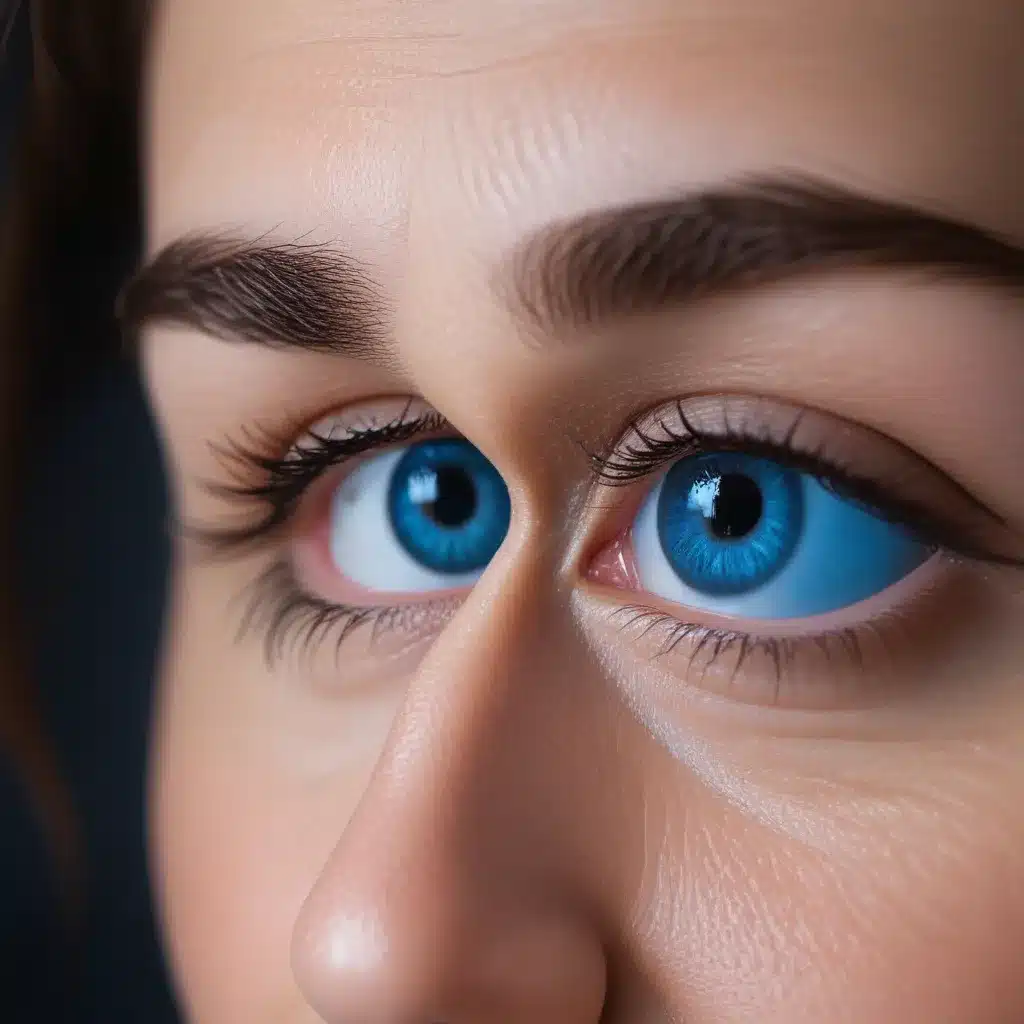Staring at Screens is Ruining My Eyes!
Have you ever found yourself rubbing your eyes after a long day of staring at a computer screen? I know I have. The burning, the strain, the headaches – it’s enough to make you want to ditch all your devices and live off the grid. But before you go full caveman, let’s talk about something called blue light and how we can reduce its effects on our eyes.
You see, blue light is part of the visible light spectrum, and it’s the type that’s emitted by our trusty digital devices – smartphones, tablets, laptops, you name it. [1] Now, a little blue light is actually good for us; it helps regulate our sleep-wake cycle and can even boost mood and cognitive function. [2] But too much exposure, especially at night, can wreak havoc on our eyes and our overall health.
The Dangers of Blue Light
Imagine your eye is a camera lens, and blue light is the sun’s piercing rays. Just like how too much sun can damage a camera sensor over time, that high-energy blue light can potentially harm the light-sensitive cells in the back of your eye, called the retina. [3] This could lead to some pretty serious eye problems down the line, like cataracts, macular degeneration, and even cancer. [4]
But it’s not just long-term damage we need to worry about. All that blue light exposure can cause immediate issues too, like digital eye strain. We’re talking headaches, blurred vision, dry eyes, and even neck and shoulder pain. [2] And get this – we tend to blink less when we’re staring at screens, which only exacerbates the problem. [2]
It’s a vicious cycle, really. The more we use our devices, the more our eyes suffer. And the more our eyes suffer, the more we’re drawn to those addictive little screens for relief (hello, endless TikTok scrolling). But fear not, my fellow screen addicts – there are ways to break the cycle and give our eyes a much-needed break.
Practical Tips to Reduce Blue Light Exposure
Alright, time to put on our problem-solving hats. Here are some simple strategies to help minimize blue light exposure and protect our precious peepers:
Take Regular Breaks
Every 20 minutes, look away from your screen and focus on an object at least 20 feet away for at least 20 seconds. [5] It’s called the 20-20-20 rule, and it’s a game-changer for reducing eye strain. Trust me, your eyes will thank you.
Use Blue Light Blocking Glasses
These special lenses are designed to filter out the high-energy blue wavelengths, reducing their impact on your eyes. [4] They won’t make you look like a cyborg, I promise – they come in all sorts of stylish frames these days.
Adjust Your Screen Settings
Most devices have a “night mode” or “dark mode” that reduces blue light emissions, especially in the evenings. [6] You can also try using screen filters or anti-reflective coatings to cut down on glare. [5]
Limit Screen Time Before Bed
Blue light exposure at night is particularly disruptive to our sleep-wake cycle, as it can suppress the production of melatonin, the sleep hormone. [7] Try to avoid screens for at least 2-3 hours before bedtime.
Consider Supplements
Some research suggests that taking supplements with lutein and zeaxanthin – nutrients that act as natural blue light filters – may help alleviate digital eye strain and improve sleep quality. [1] Of course, always check with your doctor before starting any new supplements.
Protecting Your Eyes for the Long Haul
Look, I get it – we live in a digital world, and cutting out screens entirely isn’t a realistic option for most of us. But by being mindful of our blue light exposure and implementing a few simple strategies, we can keep our eyes happy and healthy, both in the short and long term.
So the next time you find yourself squinting at your laptop or smartphone, remember: your eyes deserve a break. Step away, give them a rest, and thank me later. Your future self will be grateful you did.
References
[1] WebMD. (n.d.). Blue Light: How to Reduce Its Effects. Retrieved from https://www.webmd.com/eye-health/blue-light-reduce-effects
[2] UC Davis Health. (2022, August). Blue Light: Effects on Your Eyes, Sleep, and Health. Retrieved from https://health.ucdavis.edu/blog/cultivating-health/blue-light-effects-on-your-eyes-sleep-and-health/2022/08
[3] American Academy of Ophthalmology. (n.d.). Should You Be Worried About Blue Light? Retrieved from https://www.aao.org/eye-health/tips-prevention/should-you-be-worried-about-blue-light
[4] Optometrists.org. (n.d.). Protecting Your Eyes from Blue Light. Retrieved from https://www.optometrists.org/general-practice-optometry/guide-to-eye-exams/eye-protection-at-home/protecting-your-eyes-from-blue-light/
[5] American Academy of Ophthalmology. (n.d.). Digital Devices and Your Eyes. Retrieved from https://www.aao.org/eye-health/tips-prevention/digital-devices-your-eyes
[6] Healthline. (2020, October 28). What Is Blue Light? Retrieved from https://www.healthline.com/health/what-is-blue-light
[7] Block Blue Light. (n.d.). Ways to Minimise Blue Light. Retrieved from https://www.blockbluelight.com/blogs/news/ways-to-minimise-blue-light
[8] NCBI. (2018). The impact of blue-enriched white light on retinal function and sleep in healthy adults. Retrieved from https://www.ncbi.nlm.nih.gov/pmc/articles/PMC6288536/













